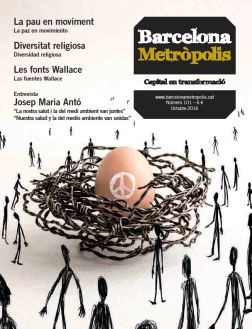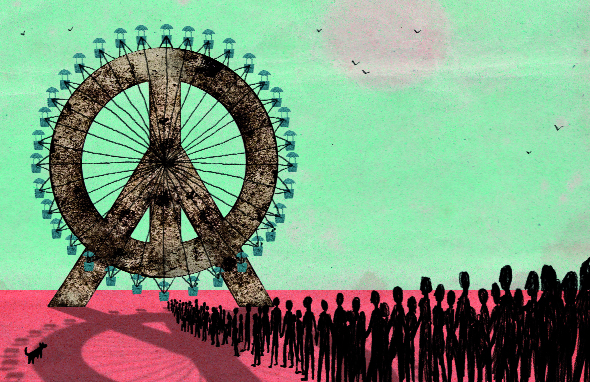Many of us have had our geography lessons thrust upon us by war. Beirut, Vukovar, Kandahar, Tikrit and Aleppo are place names that have been carved into our memories by gunfire and shrapnel. And closer to home, our city’s streets and squares commemorate local battles that date further back, such as Bailén and Tetuán.
Barcelona has shown itself to be a city of pacifism. Over time, this has been demonstrated time and again: during the anti-NATO campaign in the 1980s, the movement for conscientious objection against military service, the launching of campaigns such as C3A against the arms trade, the creation of collectives such as Dones Antimilitaristes [Anti-military Women], and the large crowds that protested against the war in Iraq.
In this dossier we look at the pacifist movement from various perspectives. We start with the rejection of military service, which by the end of the last century had become so common that in Catalonia there were more objectors than recruits. We focus on gender and peace, and the continuing threat of male violence. We also discuss coexistence between different religions. We cover the work performed by various organisations seeking to promote peace, who are part of a network that is able to react to major crises, as proved a year ago by the City Council’s activation of its Refuge City plan. And we ponder the future and challenges Barcelona faces in this field. In a globalised world, city networks are cornerstones in the construction of peace.




